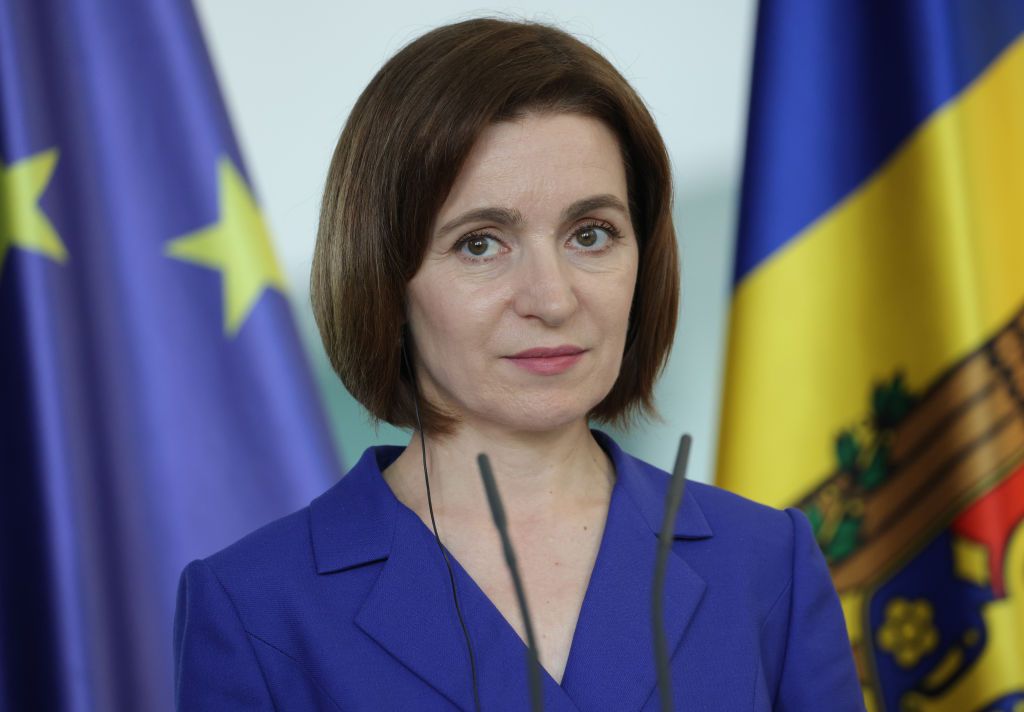The preliminary results of Moldova’s presidential election on Nov. 3 show pro-EU incumbent Maia Sandu winning over pro-Russian challenger Alexandr Stoianoglo. Sandu leads Stoianoglo by approximately 53% to 46%, with over 96% of votes counted. Sandu failed to win a majority in the first round of voting on Oct. 20, leading to the decisive Nov. 3 runoff. The election is a critical moment for Moldova as the nation chooses between EU integration and Russian influence. Allegations of voter fraud and electoral interference have been prominent in this election, with Russian-backed fugitive oligarch Ilan Shor accused of laundering over $39 million to disseminate propaganda and influence voters. Moldovan authorities are also investigating organized voter transport, potentially linked to trips from Russia and other countries, raising concerns about external influence.
Sandu urged Moldovans to protect the country’s independence through voting, calling on citizens to resist intimidation and defend their nation’s pro-European path. Meanwhile, Stoianoglo has denied involvement in vote-buying or Kremlin connections, despite mounting scrutiny. The tense electoral cycle comes shortly after the disputed parliamentary elections in Georgia, where the ruling Georgian Dream party claimed victory. Pro-European parties and international monitors have raised doubts about the integrity of the election process. Moscow’s alleged involvement in Moldova’s election is another instance of external influence, with authorities stating that $39 million was funneled into the country in an attempt to sway the election results by paying citizens to vote against closer ties with the West.
The allegations of Russian interference in Moldova’s election highlight the ongoing battle between pro-European and pro-Russian forces in the country. Sandu’s victory is seen as a win for the pro-EU camp, as she has been a vocal advocate for closer ties with the European Union and has pledged to continue on the pro-European path. Stoianoglo’s denial of involvement in vote-buying or connections to the Kremlin underscores the complexity of the political landscape in Moldova, where allegiances and influences are often intertwined. The election results will have significant implications for Moldova’s future trajectory, as the country grapples with balancing its relations with the EU and Russia.
The investigation into organized voter transport and allegations of voter fraud point to the challenges faced by Moldova in ensuring free and fair elections. The role of external actors, such as Russia, in attempting to influence the election outcomes is a cause for concern and underscores the need for robust safeguards to protect the democratic process. Sandu’s call for Moldovans to safeguard their independence through voting reflects the importance of civic engagement and active participation in shaping the country’s future. As Moldova navigates its geopolitical positioning between East and West, the election results will shape the country’s relations with the EU, Russia, and other international partners.
Ultimately, the outcome of Moldova’s presidential election represents a pivotal moment in the country’s political landscape. The victory of Maia Sandu over Alexandr Stoianoglo signals a reaffirmation of support for the pro-European path, despite challenges and allegations of interference. The scrutiny and investigations into electoral irregularities underscore the need for transparency and accountability in the electoral process. Moving forward, Moldova will need to address the issues raised during the election cycle and work towards strengthening its democratic institutions to ensure the integrity of future elections. Sandu’s leadership will be closely watched as she navigates the complex geopolitical terrain and seeks to advance Moldova’s interests while balancing competing influences and alliances.















